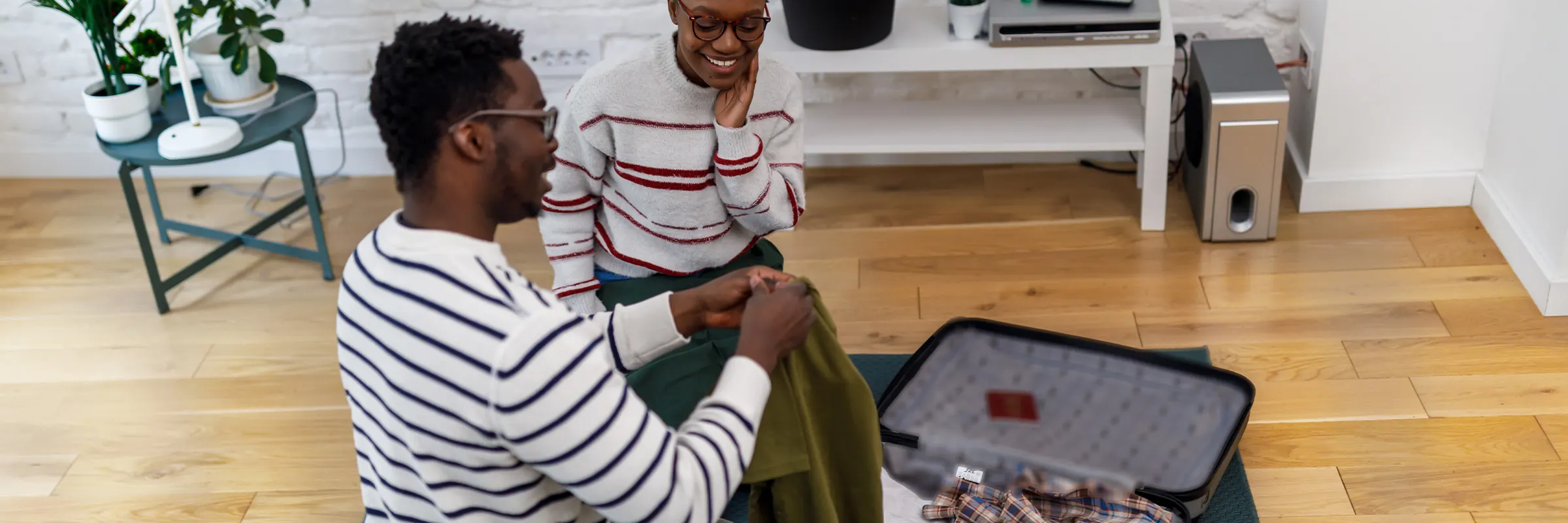Whether you’re upgrading to an apartment around the corner or putting down roots across the country, moving can be a pricey process. But with some creativity and planning, you can make relocating more affordable.
1. Plan and budget early
A solid moving plan can help you stay on track financially and avoid last-minute purchases. Start by writing out your budget, to-do list and timeline. Then figure out which moving expenses you’re willing to spend money on and which you’d rather DIY (more on that later).
Read more: Save for big moving expenses and track your spending with Ally Bank accounts.
2. Do your research
If you’re looking for low-cost but highly reliable movers, you’ll want to get quotes from multiple companies. Reach out to friends for trusted recommendations or read some online reviews to get a better picture of what you can expect. And make sure that you read the fine print on any quotes or contracts to uncover any extra fees before making a final decision.
3. Time your move right
The cost of moving, like many large expenses, changes with the seasons. Most people move during summer, making October through April the least expensive time to move as moving companies tend to have less business.
4. Take stock of your stuff
Are you moving in with a partner or a new roommate? Is your new spot a little smaller? Take time to assess which items you own that aren’t needed in your new space. Knowing what’s worth the time and cost to bring with you will save you some moving-day decision making and stress.
Most people move during summer, making October through April the least expensive time to move as moving companies tend to have less business.
5. Have a garage sale
Holding a sale is a fun way to get rid of extra clutter, make some extra cash and find new homes for your items. Plus, sorting through what you want to keep and what you’re willing to part with helps reduce the amount of boxes to move.
6. DIY your packing and supplies
Supplies can quickly add to the cost of your move. Save money by checking out your local grocery stores, online resale and buy-nothing communities and friendly neighbors who might have extra boxes lying around for you to use. When it comes time to pack up, your short stint as a “box hoarder” will pay off.
Instead of paying movers to pack up your belongings, save money by doing it yourself. Get creative by using newspapers, towels, sweaters or thick blankets to wrap your breakables. Just be sure you aren’t using anything too precious that may be damaged.
7. Transfer your mail and utilities
Make sure to cancel your utilities at your old address to ensure you’re not charged for two locations. This will also give you the opportunity to look for low-cost signup offers for internet and cable at your new home. And while it may not save you any money immediately, update your mailing address to make sure you don’t miss important bills or notices.
8. Minimize your movers
Whether you’re paying professional movers or bribing friends with pizza, reducing the amount of stuff they have to move could help you save. Have a friend with a pickup truck? Ask if they’ll let you use it to move your couch. If you have a car, pack it up with smaller boxes on your trips to the new place. Every item you move on your own will help your movers focus on the heavy items.
9. Consider moving insurance
If you have valuable possessions that might get lost or broken in transit, moving insurance can help cover the cost of potential damage — and give you peace of mind. You’ll pay a fraction of the item’s value up front to insure what could be an unfortunate loss.
10. Take a beat
With all the new possibilities that come with a new dwelling, it’s tempting to jump into redecorating and renovating. You may feel the urge to buy furniture, redo your kitchen fixtures or upgrade an appliance. Give yourself a moment to live in your new space so you understand what’s actually needed, instead of making numerous purchases all at once.
Your adventure awaits
Moving can be a stressful process, but it’s also an exciting one — especially when you can reduce your moving costs. As you settle into your new home, you’ll have a little extra cash in your savings account for whatever comes next.



